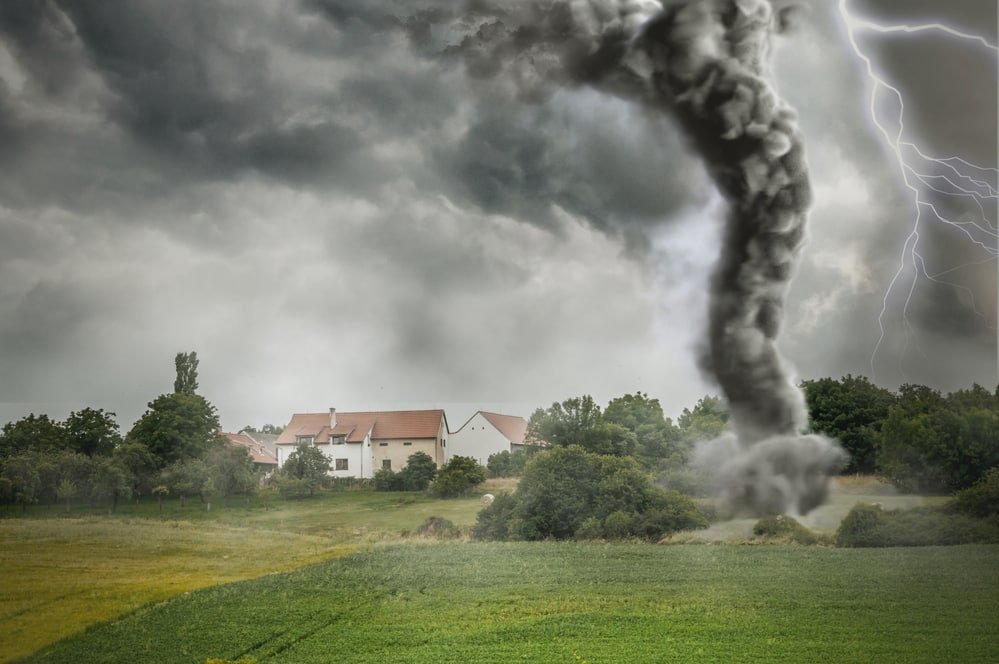
If you live in an area that sees a lot of tornadoes, you will want to be ready for the event that one touches down. With a natural disaster like a tornado, it pays to be as prepared as possible so that you come out of the other side with no problems.
This is a brief guide which will attempt to show you how to prepare for a tornado.
Items to have prepared
First off, you will want to have enough food and potable water to last you for at least 3 days. An emergency may last longer than that, but 3 days worth of food and water will give you a chance to coordinate with emergency crews if an emergency goes longer than that.
Your best bet is to get non-perishable foods and beverages when possible. Bagged water, as strange as it sounds, tends to be potable for a longer time than bottled water. And, of course, canned food will typically last long enough to be a good emergency food source.
A generator is vital to have, in the event that power should go out. If you have a cell phone, you will want to make sure it is charged up at all times in an emergency, and a generator will go a long way towards that. Failing that, several emergency one-time chargers exist to give your phone the power to last for a while.
Make sure that you have a radio of some sort. As most emergency services communicate their commands and updates via radio, having a radio will ensure you get the most accurate, up-to-date information about what is happening in an emergency situation. A good radio works but in times of crisis having the best weather radio could be a life saver.
A generalized kit for emergencies is vital to have, not just for tornado preparedness, but to prepare for any emergency that may occur. Numerous pre-made kits exist, but the best kit will have a lot of the things that have already been mentioned, as well as a portable way to keep warm (such as a space blanket), a multi-use tool (which can prevent you from having to carry a large box of more specific tools), and a first aid kit.
If you are in a house, you may want to have plywood sheets roughly the size of your windows available. While this won’t provide the most vital protection, this can prevent glass shards from entering your house.
Things to learn
You should know the best place to hide in your home if a tornado hits. Any underground room that you have, such as a basement or emergency cellar, works best. If you don’t have this as an option, your next best bet is a room that is central in your house that is as far from any windows as you can manage.
If you do not live in a secure house, or you spend a lot of your time away from home, you should learn the location of numerous places that serve as emergency shelters in case of storms. That way, you can be sure to have a place to weather a storm if your home isn’t totally safe.
As far as skills you should know, the most important skill to learn is first aid. CPR and wound dressing can make your life much easier in the event of a tornado. These skills can ensure that you use your first aid kit correctly.
While having such certification is somewhat obscure, having a ham radio license can ensure that you have a way to communicate with the outside world should cell phone towers and the internet fail.
Things to share
Make sure, well in advance, that your family knows the emergency plan. That way, if you have any children and they are at home without you, they will know what to do in an emergency.
Be sure that your children know the best practices if they end up in a tornado situation outside of the home.
Make sure that you have emergency contacts at the ready in case you need to contact them after the storm.
While this is a great deal of preparation, this will ensure that you not only survive a tornado but that you make it through a tornado about as well as you could hope.
ATTENTION READERS
We See The World From All Sides and Want YOU To Be Fully InformedIn fact, intentional disinformation is a disgraceful scourge in media today. So to assuage any possible errant incorrect information posted herein, we strongly encourage you to seek corroboration from other non-VT sources before forming an educated opinion.
About VT - Policies & Disclosures - Comment Policy



